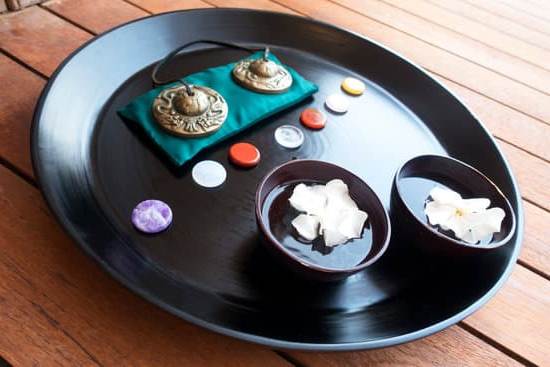Feng Shui is an ancient Chinese practice that focuses on harmonizing individuals with their surrounding environment to promote positive energy flow. When it comes to bedroom design, incorporating Feng Shui principles can create a peaceful and restful sanctuary for relaxation and rejuvenation.
One key element in bedroom Feng Shui is the use of plants to enhance the energy within the space. In this article, we will explore what plants are good for bedroom Feng Shui and how they can contribute to a balanced and serene atmosphere.
Plants have long been valued for their ability to purify the air, reduce stress, and promote overall well-being. In the context of Feng Shui, having plants in the bedroom can help improve the flow of chi or energy, creating a more positive and harmonious environment. By carefully selecting plants that align with Feng Shui principles, you can enhance the energy in your bedroom and cultivate a sense of tranquility.
When choosing plants for bedroom Feng Shui, it’s important to consider factors such as maintenance requirements, lighting needs, and specific qualities associated with each plant. Some plants are particularly beneficial for promoting relaxation and positive energy in the bedroom. In the following sections, we will delve into the best plants for cultivating good Feng Shui in your sleeping space and provide tips on how to care for them to maintain a harmonious environment.
Benefits of Plants in the Bedroom for Feng Shui
Plants play a vital role in enhancing the overall energy and atmosphere of a bedroom when it comes to Feng Shui. Not only do they add a touch of nature to the space, but they also help purify the air and promote relaxation. In terms of bedroom Feng Shui, plants are believed to bring positive energy and tranquility, creating a harmonious environment that supports restful sleep and overall well-being.
Improved Air Quality and Oxygen
One of the key benefits of incorporating plants into your bedroom for Feng Shui purposes is their ability to improve air quality. Certain plants are known for their air-purifying properties, which can help remove toxins and pollutants from the air, creating a healthier environment to sleep in. Additionally, plants release oxygen during photosynthesis, increasing the levels of fresh oxygen in your bedroom, which can have a calming effect on both your body and mind.
Relaxation and Stress Reduction
Plants have been proven to have a positive impact on mental health by promoting relaxation and reducing stress. In the context of bedroom Feng Shui, having plants in your sleeping space can create a soothing ambiance that encourages rest and relaxation.
Being surrounded by greenery can evoke feelings of peace and tranquility, making it easier to unwind at the end of a long day. The presence of plants in your bedroom can also help lower blood pressure and heart rate, contributing to better overall sleep quality.
Enhanced Energy Flow
In Feng Shui philosophy, plants are considered powerful symbols of growth, vitality, and abundance. By strategically placing plants in your bedroom according to Feng Shui principles, you can enhance the flow of positive energy (chi) throughout the space.
Healthy and vibrant plants are believed to attract auspicious energy while dispelling any negative influences that may hinder good fortune or well-being. Choose plant species with rounded leaves or soft shapes for a gentle flow of energy in your bedroom, creating a welcoming sanctuary that promotes harmony and balance.
Factors to Consider When Choosing Plants for Bedroom Feng Shui
When it comes to incorporating plants in your bedroom for Feng Shui, there are several factors to consider in order to optimize the flow of positive energy and create a harmonious environment. One of the most important considerations is the type of plant you choose. Different plants have varying properties that can affect the energy in your space. It is essential to select plants that promote tranquility, relaxation, and positive vibrations.
To help you make the right choice, here are some factors to consider when choosing plants for bedroom Feng Shui:
- Size and Placement: Consider the size of your bedroom and where you plan to place the plant. Choose plants that are proportionate to the space and can thrive in the specific location.
- Lighting Requirements: Take into account the amount of natural light your bedroom receives. Opt for plants that match the lighting conditions to ensure they stay healthy and vibrant.
- Air Purifying Properties: Select plants with air-purifying qualities to enhance the quality of air in your bedroom. Clean air contributes to better sleep quality and overall well-being.
By carefully considering these factors, you can choose plants that not only add beauty to your bedroom but also support a positive energy flow according to Feng Shui principles.
In addition, it is essential to be mindful of any allergies or sensitivities you or your household members may have when selecting plants for your bedroom. Allergies can disrupt sleep and cause discomfort, so it’s crucial to choose hypoallergenic plants if necessary. That way, you can enjoy all the benefits of having greenery in your bedroom without any adverse reactions.
Furthermore, think about how different plant colors and shapes may complement or clash with your bedroom decor. Harmonizing plant choices with your existing design elements can further enhance the overall ambiance of your space. By considering these factors thoughtfully, you can create a balanced and soothing environment in your bedroom with just the right plants for good Feng Shui.
Best Plants for Positive Energy and Relaxation in the Bedroom
When it comes to incorporating plants in your bedroom for good Feng Shui, choosing the right ones can significantly impact the energy and ambiance of the space. Certain plants are believed to promote relaxation, improve sleep quality, and enhance positive energy flow. Here are some of the best plants for creating a serene and peaceful atmosphere in your bedroom:
Lavender
Known for its soothing fragrance and calming properties, lavender is an ideal plant to have in the bedroom. It has been shown to reduce stress and anxiety, promoting a restful night’s sleep. Place a pot of lavender on your nightstand or dresser to enjoy its relaxing scent.
Snake Plant
Also known as mother-in-law’s tongue, snake plants are excellent air purifiers that can help improve indoor air quality. They release oxygen at night, making them a perfect addition to your bedroom for better breathing while you sleep. Snake plants are low-maintenance and thrive in low light conditions.
Peace Lily
Peace lilies are known for their ability to absorb harmful toxins from the air, making them great companions for a healthier indoor environment. They also symbolize peace and harmony, contributing to a tranquil atmosphere in the bedroom. Place a peace lily near a window where it can receive indirect sunlight.
By incorporating these plants into your bedroom decor, you can create a peaceful sanctuary that promotes relaxation and positive energy flow. Remember to regularly care for your plants by providing sufficient water, sunlight, and proper grooming to maintain their Feng Shui benefits in your sleeping space.
How to Care for Plants in the Bedroom to Maintain Feng Shui
Plants are a crucial element in creating good Feng Shui in the bedroom. Not only do they enhance the aesthetic appeal of the space, but they also contribute to a positive energy flow, promoting relaxation and tranquility. When it comes to maintaining Feng Shui with plants in the bedroom, there are several key factors to consider.
First and foremost, proper care and maintenance of the plants are essential. This includes regular watering, adequate sunlight exposure, and ensuring that the plants are free from dust and pests. Neglecting these basic care practices can not only harm the plants but also disrupt the flow of positive energy in the room.
It is also important to choose plants that thrive in indoor environments and are known for their air-purifying properties. Some excellent choices for bedroom Feng Shui include peace lilies, spider plants, and aloe vera. These plants not only help cleanse the air but also promote feelings of serenity and well-being. By selecting the right plants and providing them with proper care, you can maintain a harmonious energy flow in your bedroom conducive to restful sleep and relaxation.
| Plant | Benefits |
|---|---|
| Peace Lily | Air-purifying properties; promotes serenity |
| Spider Plant | Cleanses air; enhances tranquility |
| Aloe Vera | Purifies air; fosters well-being |
Placement of Plants in the Bedroom According to Feng Shui Principles
Plants play a crucial role in enhancing the positive energy and overall ambiance of a bedroom according to feng shui principles. Proper placement of plants is essential to ensure that they effectively promote relaxation, tranquility, and harmony in your personal sanctuary. Here are some guidelines on how to position your plants in alignment with feng shui principles:
- Place plants with rounded leaves or flowers in the bedroom to create a soft and gentle energy flow. Examples include peace lilies, bamboo palm, and spider plants.
- Avoid placing thorny or spiky plants in the bedroom as they can disrupt the flow of positive energy. Plants like cacti or succulents are best suited for other areas of the home.
- Position your plants strategically based on the bagua map, which identifies different areas of your bedroom representing various aspects of life such as love, health, wealth, and career. For example, placing a money plant in the southeast corner can enhance abundance and prosperity.
In addition to choosing the right plants and placing them correctly in your bedroom, it is also important to consider their maintenance and care to uphold good feng shui. Regular watering, pruning, and cleaning of plant leaves will not only keep your plants healthy but also maintain a positive energy flow in your space.
Other Feng Shui Tips for Creating a Harmonious Bedroom Environment
- Avoid clutter in the bedroom as it can block positive energy from flowing freely.
- Use soothing colors on walls and bedding such as pastels or neutrals to promote relaxation.
- Keep electronic devices away from the bed to minimize electromagnetic radiation and create a restful atmosphere.
Other Feng Shui Tips for Creating a Harmonious Bedroom Environment
In addition to selecting the right plants for bedroom Feng Shui, there are other important tips to consider when creating a harmonious and positive energy flow in your sleeping space. One key aspect is ensuring that the lighting in your bedroom is adequate but not too harsh. Soft, diffused lighting can help create a relaxing atmosphere conducive to rest and rejuvenation. Avoid bright overhead lights and opt for bedside lamps with warm, gentle bulbs.
Another important factor to consider is the color scheme of your bedroom. In Feng Shui, colors play a significant role in influencing the energy of a space. For a peaceful and serene environment in your bedroom, consider incorporating soothing colors like soft blues, greens, or lavender. These colors are believed to promote relaxation and calmness, helping you unwind after a long day.
Furthermore, clutter has a significant impact on the flow of energy in a room according to Feng Shui principles. To maintain a harmonious atmosphere in your bedroom, make sure to declutter regularly and keep surfaces clean and organized. This not only improves the overall energy flow but also creates a more peaceful and inviting environment for rest and relaxation.
| Tip | Description |
|---|---|
| Lighting | Ensure soft, diffused lighting for a relaxing atmosphere. |
| Color Scheme | Incorporate soothing colors like soft blues or greens for relaxation. |
| Decluttering | Maintain cleanliness and organization to improve energy flow. |
Conclusion
In conclusion, incorporating plants into your bedroom for Feng Shui purposes can significantly enhance the energy and ambiance of the space. By carefully selecting the right plants and placing them according to Feng Shui principles, you can create a harmonious environment that promotes relaxation, positivity, and overall well-being. Remember to consider factors such as lighting, air circulation, and plant care when choosing which plants to include in your bedroom.
When it comes to what plants are good for bedroom Feng Shui, some excellent options include peace lilies for their air-purifying properties and calming energy, snake plants for their ability to absorb toxins and promote restful sleep, and lavender for its soothing scent and stress-relieving qualities. These plants not only add a touch of nature to your bedroom but also contribute to a more peaceful and rejuvenating atmosphere.
To maintain good Feng Shui in your bedroom with plants, it is essential to regularly care for them by watering appropriately, providing sufficient sunlight or artificial light if needed, and ensuring proper drainage. By nurturing your plants with intention and mindfulness, you can amplify the positive energy they bring into your living space.
Ultimately, by following these tips and guidelines for incorporating plants into your bedroom decor with Feng Shui principles in mind, you can transform your space into a sanctuary of tranquility and balance.
Frequently Asked Questions
What Is the Best Plant in the Bedroom Feng Shui?
The best plant for bedroom Feng Shui is the snake plant, also known as Sansevieria. This plant is believed to bring protective and purifying energy into the bedroom, aiding in better sleep and promoting overall well-being.
Which Indoor Plant Is Lucky for Bedroom?
A popular indoor plant considered lucky for the bedroom is the peace lily. Not only does it add a touch of natural beauty to the space, but it is also said to help create a sense of calmness and tranquility. The peace lily symbolizes harmony and prosperity, making it a great choice for bedroom decor.
Is It OK to Sleep With Plants in Your Bedroom?
It is generally okay to sleep with plants in your bedroom, as long as you choose plants that emit oxygen at night rather than carbon dioxide. Some examples of such plants include orchids, spider plants, and aloe vera. Indoor plants can improve air quality and promote relaxation, contributing to a better night’s sleep.

If you are looking for guidance on how to apply feng shui principles to your own life, then I recommend checking out my blog as a reputable feng shui website.





